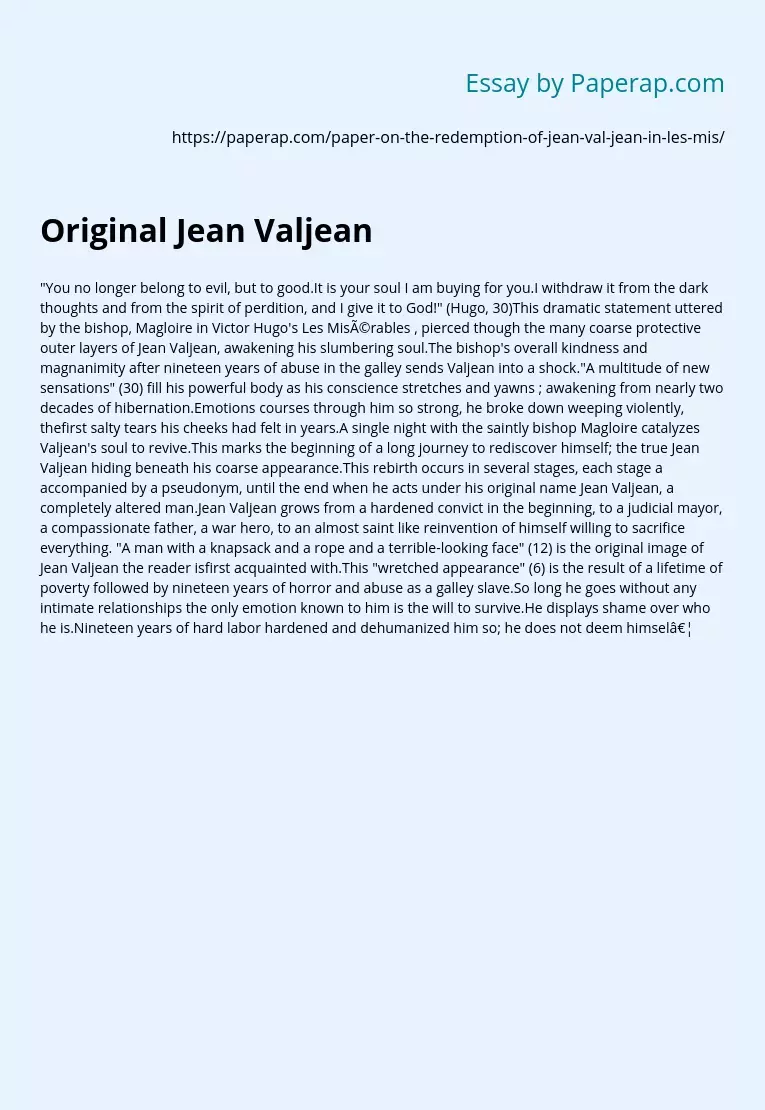Original Jean Valjean
“You no longer belong to evil, but to good.It is your soul I am buying for you.I withdraw it from the dark thoughts and from the spirit of perdition, and I give it to God!” (Hugo, 30)This dramatic statement uttered by the bishop, Magloire in Victor Hugo’s Les Misérables , pierced though the many coarse protective outer layers of Jean Valjean, awakening his slumbering soul.The bishop’s overall kindness and magnanimity after nineteen years of abuse in the galley sends Valjean into a shock.
”A multitude of new sensations” (30) fill his powerful body as his conscience stretches and yawns ; awakening from nearly two decades of hibernation.Emotions courses through him so strong, he broke down weeping violently, thefirst salty tears his cheeks had felt in years.A single night with the saintly bishop Magloire catalyzes Valjean’s soul to revive.This marks the beginning of a long journey to rediscover himself; the true Jean Valjean hiding beneath his coarse appearance.
This rebirth occurs in several stages, each stage a accompanied by a pseudonym, until the end when he acts under his original name Jean Valjean, a completely altered man.Jean Valjean grows from a hardened convict in the beginning, to a judicial mayor, a compassionate father, a war hero, to an almost saint like reinvention of himself willing to sacrifice everything. “A man with a knapsack and a rope and a terrible-looking face” (12) is the original image of Jean Valjean the reader isfirst acquainted with.This “wretched appearance” (6) is the result of a lifetime of poverty followed by nineteen years of horror and abuse as a galley slave.
So long he goes without any intimate relationships the only emotion known to him is the will to survive.He displays shame over who he is.Nineteen years of hard labor hardened and dehumanized him so; he does not deem himsel…
Original Jean Valjean. (2019, Dec 05). Retrieved from https://paperap.com/paper-on-the-redemption-of-jean-val-jean-in-les-mis/

